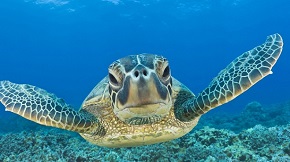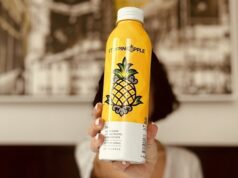
NEW YORK—To support the U.S. Fish and Wildlife Service, JetBlue recently created content in the hopes of starting a dialogue about responsible tourism and educating travelers about how to “buy informed” and travel smart to the Caribbean. JetBlue is now airing a short film on all flights informing customers of the role they play in protecting Caribbean wildlife and preserving the region’s beauty. The video, featuring local Caribbean conservation heroes, will arm travelers with the right questions to ask when purchasing wildlife and plant-related products. View the video here.
Tourism brings 22 million visitors a year to the Caribbean; however degradation of wildlife and biodiversity could change that. An increase in illegal wildlife trade in the Caribbean is contributing to the decline and potential extinction of indigenous animal species such as sea turtles, parrots, iguanas and coral. In many cases, visitors may unwittingly be contributing to the decline of the very things they want to experience.
The Caribbean is a highly biodiverse region. It is home to approximately 6,500 plant, 150 bird, 470 reptile, 40 mammal, 170 amphibian and 65 fish species not found anywhere else in the world. The global wildlife trafficking crisis threatens many of these species, which are used, often illegally, as pets, medicine, food, jewelry, clothing, souvenirs and household decorations. For example, sea turtles are used for food, jewelry and items such as combs; birds are taken from the wild and sold as pets or their feathers incorporated into souvenirs; unique reptiles are sold as exotic pets and used for clothing; and coral is taken for use in jewelry and décor.
From Jamaica to Grenada
From the coral reefs of Jamaica to the Narva Swamp of Trinidad & Tobago and the Levera National Park in Grenada, the PSA highlights the numerous ways to responsibly and mindfully travel, eat and shop in the Caribbean.
- In Jamaica, Wolde Kristos is featured. Kristos is founder of the Bluefields Bay Fishermen’s Friendly Society, which focuses on sustainable fishing practices and coral reef cleaning. His advice to travelers to Jamaica: “As a visitor to our area, we love having you. But, we’re really asking you: not to stand on our coral, not to touch it, not to throw any garbage into our sea. And also, most of all, please do not take any part of our coral. Don’t buy any jewelry made from coral. Nothing!”
- In the Nariva Swamp in Trinidad & Tobago, Laura Baboolal from Conservation Leadership in the Caribbean explained how Trinidad faces many issues with wildlife trafficking, including the blue and gold macaw—a colorful parrot known for its ability to “speak” with humans. Their team focuses on assisting border control on identifying and preventing trafficking. According to Baboolal, “observing the birds in the wild can be the best solution to reduce wildlife trafficking.”
- At Levera National Park in Grenada, Kester Charles of Ocean Spirits Inc. speaks about their efforts to protect the sea turtles found around their island. Featured are adult sea turtles emerging from the ocean during the night, laying eggs, and baby sea turtles hatching and making their way to the ocean. Due to natural threats, only an estimated one in 1,000 sea turtles will survive to adulthood. Yet sadly, in the Caribbean, many sea turtles are killed to make jewelry or consume their meat. Ocean Spirits works to protect the sea turtles from poachers, and shared an impressive 80 percent reduction in poaching since their work started. Tourists can help by not purchasing jewelry made from sea turtle shells, not supporting hotels that serve turtle meat, and doing one’s part to not disturb sea turtles in their natural environments.
Learn more from the U.S. Fish and Wildlife Service here and from their Buyer Beware Guide on being a responsible tourist—including what not to buy when traveling.
This effort fits within JetBlue’s commitment to the environment. JetBlue For Good—the company’s platform for social impact and corporate responsibility focuses on the areas that are most important to customers and crewmembers—community, youth/education and the environment.






